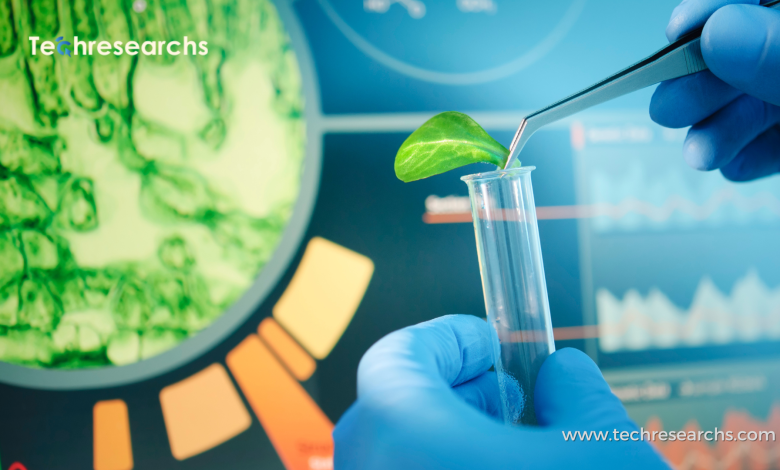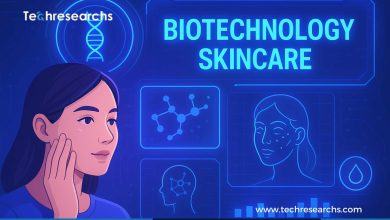The Future of Biotechnology in Medicine: New Treatments and Innovations

Biotechnology in medicine is no longer a vision of the future — it’s happening now. From gene therapies to 3D-printed organs, biotech is driving powerful breakthroughs that were unthinkable just a decade ago. As science continues to evolve, so too do the possibilities for disease prevention, diagnosis, and treatment. Let’s explore how biotechnology in medicine is reshaping healthcare and what the next decade could bring.
What Is Biotechnology in Medicine?
At its core, biotechnology in medicine uses living organisms, cells, or biological systems to develop products that improve human health. This can include:
- Genetically engineered drugs
- Cell-based therapies
- DNA editing (like CRISPR)
- Regenerative medicine
- Diagnostic tools
The fusion of biology with cutting-edge technology has opened the doors to more personalized and precise medical care.
Key Areas of Biotechnological Innovation in Healthcare
1. Gene Therapy: Correcting Disorders at the Source
Gene therapy is one of the most promising branches of biotech. By editing or replacing faulty genes, doctors can potentially cure diseases rather than just manage symptoms.
- Example: Treatments for genetic disorders like spinal muscular atrophy (SMA) and certain forms of blindness are already in clinical use.
- Emerging Tech: CRISPR-Cas9 is revolutionizing how scientists approach genome editing with accuracy and speed.
2. Personalized Medicine: Tailored to Your DNA
Forget one-size-fits-all medicine. Biotech allows for personalized treatments based on an individual’s genetic profile.
- Cancer therapies are being tailored to target specific mutations.
- Pharmacogenomics helps predict how a person will respond to drugs — reducing side effects and improving effectiveness.
3. Regenerative Medicine: Growing Cells, Tissues, and Organs
Biotechnology enables the development of artificial tissues and even 3D-printed organs.
- Stem cell therapies are being used to regenerate damaged heart tissue and treat burns.
- Bioprinting may soon produce fully functional kidneys or livers for transplantation.
4. Monoclonal Antibodies and Biologics
These lab-engineered molecules mimic natural immune responses to attack specific pathogens or cancer cells.
- Widely used in treating autoimmune diseases and cancers.
- Biologics like Humira and Rituximab are already blockbuster drugs.
5. Rapid Diagnostics and Biosensors
Biotech-enabled tools can diagnose diseases within minutes — often from just a drop of blood.
- COVID-19 rapid antigen tests are a popular example.
- Portable biosensors are emerging for continuous glucose monitoring and detecting infections early.
Benefits of Biotechnology in Medicine
| Advantage | Description |
|---|---|
| Precision Treatment | Targeted therapies reduce trial-and-error prescriptions |
| Fewer Side Effects | Tailored medications mean less risk of adverse reactions |
| Faster Diagnosis | Real-time, point-of-care diagnostics improve treatment timelines |
| Cost-Effective Long-Term | While initial costs are high, long-term management is reduced |
| Breakthrough Cures | Potential to cure diseases like cancer, HIV, or inherited disorders |
Challenges in Biotech Adoption
Despite its promise, biotechnology in medicine also faces hurdles:
- Ethical concerns around gene editing and cloning.
- Regulatory approvals are complex and time-consuming.
- Cost barriers for advanced therapies like CAR-T can reach hundreds of thousands of dollars.
- Data privacy issues related to DNA sequencing and personalized records.
Balancing innovation with safety, ethics, and affordability is crucial.
A Look at the Future of Biotech in Healthcare
Here’s where the industry is headed:
- AI + Biotech: Machine learning will help predict diseases before they develop, based on biomarkers.
- Wearable Biotech Devices: Real-time health tracking using biosensors and smart materials.
- Global Accessibility: As biotech becomes cheaper, rural and underserved communities will gain access to cutting-edge treatments.
FAQs on Biotechnology in Medicine
1. How is biotechnology used in hospitals today?
A. Hospitals use biotech for diagnostics (like genetic testing), cancer treatments (immunotherapy), and even lab-grown tissues for burns or injuries.
2. What diseases can biotechnology cure or treat?
A. It shows promise in treating cancer, diabetes, genetic disorders, autoimmune diseases, and infectious diseases like HIV and COVID-19.
3. Is biotech medicine safe?
A. Yes, biotech treatments undergo rigorous clinical trials and FDA approvals. Like all treatments, risks exist but are closely monitored.
4. What is the future salary potential in biotech medicine careers?
A. Biotech professionals, especially in R&D and gene editing, often earn six-figure salaries due to high demand and specialization.
Biotechnology Is Redefining What’s Possible in Medicine
Biotechnology in medicine is at the forefront of a healthcare revolution. It’s transforming how we understand, treat, and even prevent disease. As innovation continues to break new ground, patients will benefit from more personalized, effective, and fast-acting treatments.
More TechResearch’s Insights and News
Nature Biotechnology in Medicine: A New Era of Treatments
Biotechnology for a Better Tomorrow: Sustainable Innovations



